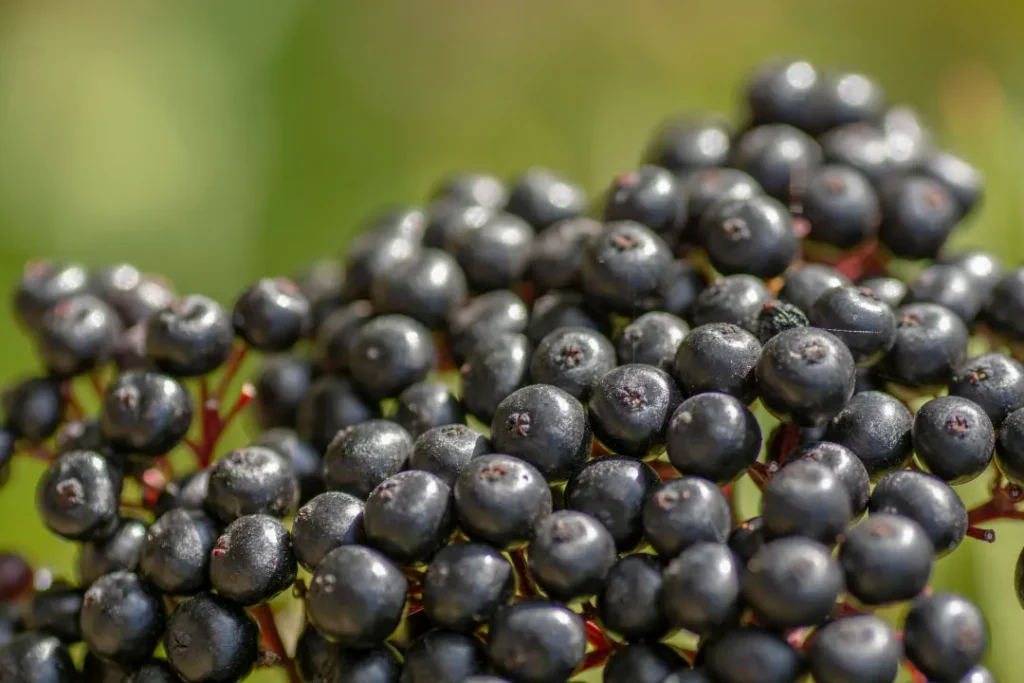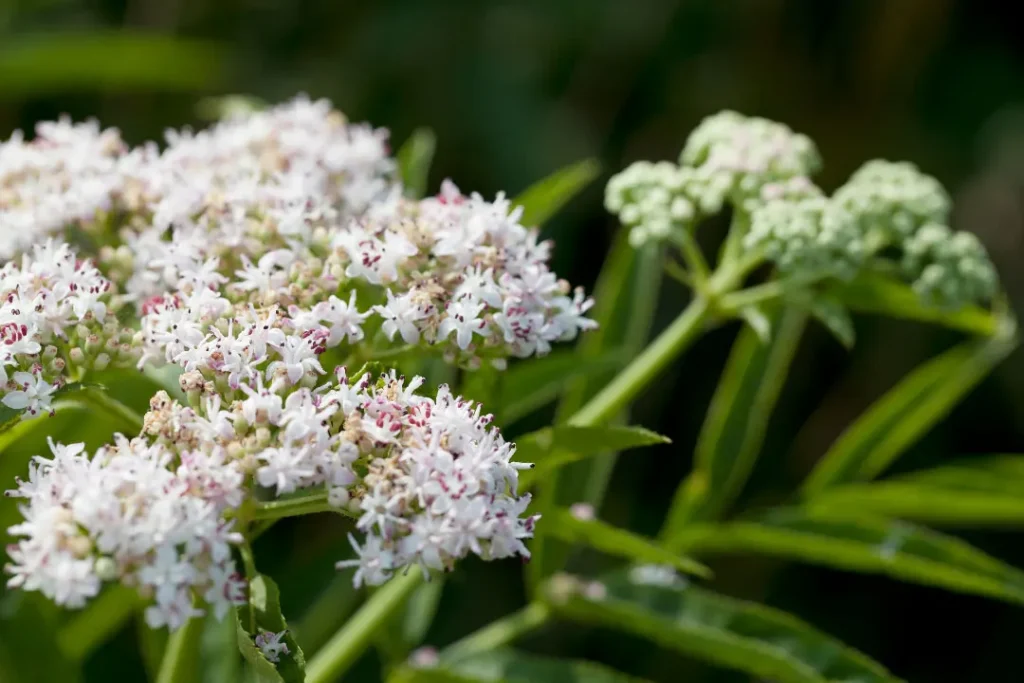Sambucus ebulus, sometimes referred to as dwarf elder, is a perennial plant species indigenous to Europe and some regions of Asia. This herb has been used in traditional medicine due to its valued medicinal properties. This in-depth analysis explores the characteristics of dwarf elder, its health advantages, ideal dose, adverse effects, and potential drug interactions, and offers helpful advice on responsible usage for its use as a nutritional supplement.
You May Also Like:
Cnidium: Benefits, Dosage, Side Effects, Drug Interactions, and Other Important Information
Cocillana: Benefits, Dosage, Side Effects, Drug Interactions, and Other Important Information
Dwarf Elder: Benefits, Dosage, Side Effects, Drug Interactions, and Other Important Information is an original (NootroPicsPlanet) article.
Nature of Dwarf Elder
Dwarf elder is a herbaceous plant that is also known as danewort. It has an annual life cycle and is smaller in height than its taller cousins. It has a unique scent and produces dark purple-black berries.
Flavonoids, anthocyanins, and triterpenoids are abundant in the plant components, particularly the berries, which contribute to their therapeutic effects. Traditional medicine utilizes various plant components, such as leaves, roots, and berries, for their various medicinal benefits.
Health Benefits of Dwarf Elder
Dwarf elder has a variety of health advantages due to the abundance of bioactive chemicals in its composition. It has been used in conventional medicine to treat numerous disorders, including rheumatism, fever, skin concerns, and respiratory problems.
According to research, the plant’s antibacterial and anti-inflammatory properties help reduce the symptoms of common respiratory ailments including colds and coughs. Additionally, its cleansing and diuretic actions can manage rheumatic disorders and speed up the detoxification process.
Due to the presence of anthocyanins and other flavonoids, dwarf elder has the antioxidant ability to help fight oxidative stress and lower the risk of developing chronic illnesses.

Chemistry of Dwarf Elder
Dwarf elder is distinguished by a variety of bioactive substances. The plant is well-known for having high levels of flavonoids, a class of plant metabolites that are hypothesized to have positive impacts on health via antioxidant and cell signaling pathways. Notably, dwarf elder contains large amounts of the flavonoids rutin and quercetin.
Anthocyanins, notably cyanidin-3-glucoside and cyanidin-3-sambubioside, are other noteworthy chemicals that contribute to the rich color of the plant’s berries. Triterpenoids and sterols in dwarf elder also add to its therapeutic qualities.
Physiological Properties of Dwarf Elder
Dwarf elder has many health advantages, but they come from the physiological effects of its bioactive components.
Rutin and quercetin are two flavonoids in dwarf elder that contain antibacterial properties. They prevent the development and spread of bacteria while aiding in the prevention and management of diseases.
Action Against Inflammation: The plant’s triterpenoid composition is principally responsible for its anti-inflammatory properties. These substances prevent the synthesis of pro-inflammatory cytokines, which assist in controlling how the body reacts to inflammation.
Strong Antioxidants: Dwarf elder contains anthocyanins, which have antioxidant properties. These substances aid in lowering oxidative stress and any damage by neutralizing damaging free radicals in the body, potentially reducing the risk of different chronic illnesses.
Dwarf elder has also been acknowledged for its diuretic and detoxifying effects, which support the body’s natural detoxification process.
Together, these methods of action highlight the significance of the plant in traditional medicine and its potential in contemporary health situations, making dwarf elder an intriguing candidate for a range of therapeutic uses.

Optimal Dosage of Dwarf Elder
The ideal dwarf elder dose varies greatly based on the intended application and the your health. To ascertain the proper dosage, it is crucial to speak with your healthcare professional.
Dwarf elder’s leaves, stems, and roots are frequently made into tinctures, infusions, or decoctions for medical purposes. The berries, on the other hand, are frequently turned into syrups or jams that can either be eaten or added to other foods.
Side Effects of Dwarf Elder
Despite its potential for healing, dwarf elder should only be taken under strict supervision owing to its possible side effects. When ingesting raw or unprocessed plant components, you might feel digestive discomfort, including nausea, vomiting, or diarrhea.

Potential Substance Interactions
There are no documented drug interactions with dwarf elder at this time. However, due to the complexity of its chemical makeup, it is advised that if you are taking medication or have certain medical issues, speak with your healthcare professional before consuming dwarf elder.
Best Uses of Dwarf Elder
Given its wide range of health advantages, a dwarf elder can be a useful addition to conventional treatment when taken carefully. For example, topical ointments made from the plant’s antibacterial and anti-inflammatory properties can be used to treat skin disorders. It is a helpful assistance in the detoxification process due to its diuretic and detoxifying qualities.
Dwarf Elder: Conclusion
Given its wide range of health advantages, dwarf elder can be a useful addition to conventional treatment when taken carefully. For example, topical ointments made from the plant’s antibacterial and anti-inflammatory properties can be used to treat skin disorders. It is a helpful assistance in the detoxification process due to its diuretic and detoxifying qualities. If you are looking to try a natural supplement that can aid in antibiotic properties, and its strong antioxidant properties, dwarf elder is a great natural herbaceous supplement that you can benefit from. Talk to your doctor if you think this is right for you.
References:
- “Phytochemical and biological activity studies of Sambucus ebulus L.” Retrieved from: https://www.mdpi.com/2076-3921/9/2/153
- “Sambucus ebulus L. (Caprifoliaceae) leaf extract exerts antioxidant and protective effects against gentamicin-induced nephrotoxicity in rats.” Retrieved from: https://www.sciencedirect.com/science/article/pii/S0378874114005121
- Biological Effects and Clinical Applications of Dwarf Elder (Sambucus ebulus L): link:https://www.ncbi.nlm.nih.gov/pmc/articles/PMC5871274/
Important Note: The information contained in this article is for general informational purposes only, and should not be construed as health or medical advice, nor is it intended to diagnose, prevent, treat, or cure any disease or health condition. Before embarking on any diet, fitness regimen, or program of nutritional supplementation, it is advisable to consult your healthcare professional in order to determine its safety and probable efficacy in terms of your individual state of health.
Regarding Nutritional Supplements Or Other Non-Prescription Health Products: If any nutritional supplements or other non-prescription health products are mentioned in the foregoing article, any claims or statements made about them have not been evaluated by the U.S. Food and Drug Administration, and such nutritional supplements or other health products are not intended to diagnose, treat, cure, or prevent any disease.


